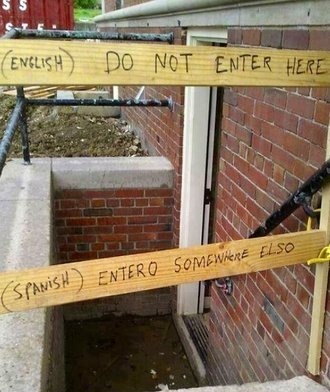Old Thunder
Well-Known Member
- Joined
- Aug 13, 2015
- Messages
- 4,329
- Reaction score
- 3,416
Inspired by the What Made You Think Today? thread, in which @fuzzygobo wrote the following:
...and I followed up with:In the Spanish alphabet, there are only five vowels: A,E,I,O, and U.
There is a Y, but not used too often.
The “y” sound we use in “yellow” is used in Spanish with “LL” as in “LLAMA “. (pronounced “ya/ma”, not “la/ma”).
English alphabet has 26 letters.
Spanish has 29.
Add CH as in “churro”
RR as in “burrito”.
n^ (should be over the n) as in “ban^o”.
and LL.
And in Spanish, there is no W.
Takes notes, there might be a quiz later.
Alphabets happen to be a very serious special interest of mine, and our posts got me thinking about doing more breakdowns from around the world of language. Hence this thread! I shall be spamming information here so hopefully someone will take interest and join in! There’s a lot to unravel just from the Latin languages, but there are a plethora of other scripts out there that I’ll bring up as well. Enjoy the show.While ch, rr, and ll have traditionally been considered separate letters, they have lately been labeled as digraphs - two letters which together make a distinct sound, like how ch is used in English.
Let’s look at the German alphabet. There are a solid number of digraphs as well, but as far as the alphabet goes, it incorporates the classic English twenty-six, plus four bonus letters.
Ää • Öö • Üü • ẞß
I’ll focus on the last letter because it would be hard to explain the other three through text. Eszett’s name combines the name for S and the name for Z in German. The letter is actually a ligature — two letters that got written together — as it evolved over time from ſs and ſz to ß. (S used to have three forms: Sſs.) ß represents the ss sound common in English in words like bless, and in German in words like groß.
For the longest time, ß only existed in lower case. When a word was written in all-caps, it was replaced by SS. A capital ß was finally created some years back to solve the problem.
Now if we could bring it into English...
More letter info to come most likely. I could do this all day.

 Welcome to the Muppet Central Forum!
Welcome to the Muppet Central Forum! The Muppet Show
The Muppet Show Sesame Street Classics on YouTube
Sesame Street Classics on YouTube Sesame Street debuts on Netflix
Sesame Street debuts on Netflix Back to the Rock Season 2
Back to the Rock Season 2 Sam and Friends Book
Sam and Friends Book Jim Henson Idea Man
Jim Henson Idea Man Bear arrives on Disney+
Bear arrives on Disney+